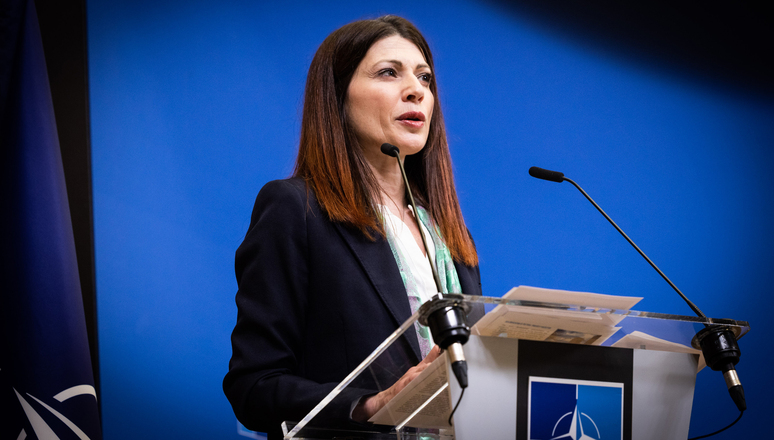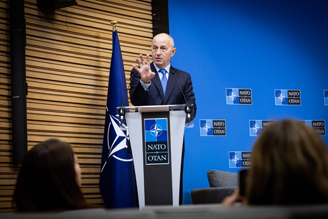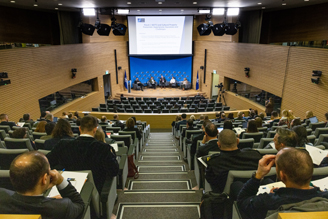NATO hosts conference on Cultural Property Protection
On 9 February, the Office of the Secretary General’s Special Representative for Women, Peace and Security (WPS) and Human Security hosted a conference on ‘Cultural Property Protection and NATO: Experiences, Practices and Trends’, at NATO Headquarters in Brussels. The aim of the conference was to assess the implications of the protection of cultural property in armed conflicts for NATO and Allies.

The Special Representative, Ms Irene Fellin, noted that “destruction of cultural property in times of conflict is not a recent phenomenon. Because of the significance for a community, and humanity as a whole, destruction of cultural property has a strategic and tactical value for belligerents during campaigns and operations. The destruction serves to demoralise and destroy a community’s identity.”
This message is particularly resonant in the current circumstances, when we are witnessing the dire consequences of Russia’s war against Ukraine, including the deliberate destruction of cultural property. As stated in the Madrid Summit Declaration, NATO Allies are committed to assisting Ukraine and supporting efforts on its path of post-war reconstruction.

Over the last decade, NATO has made progress in addressing the crosscutting challenges related to protecting cultural property in its operations and missions.
The Alliance has addressed cultural property protection in several key policy documents, including its Protection of Civilians Policy and its comprehensive approach to crisis management. At the June 2022 Madrid Summit, Allied Heads of State and Government endorsed the NATO Human Security Approach and Guiding Principles, which covers Cultural Property Protection, among other areas.
NATO will begin the process to develop a policy to support the implementation of the 1954 Hague Convention for the Protection of Cultural Property in the Event of Armed Conflict and its Protocols in NATO’s operations and missions.

The conference gathered a broad range of civilian and military practitioners, experts and national representatives, who engaged in discussions on drafting a dedicated NATO policy on Cultural Property Protection.
As Ms Fellin stressed in her remarks, cultural property is part of the human environment in which we operate, and its protection is an important part of NATO’s operational objectives.
